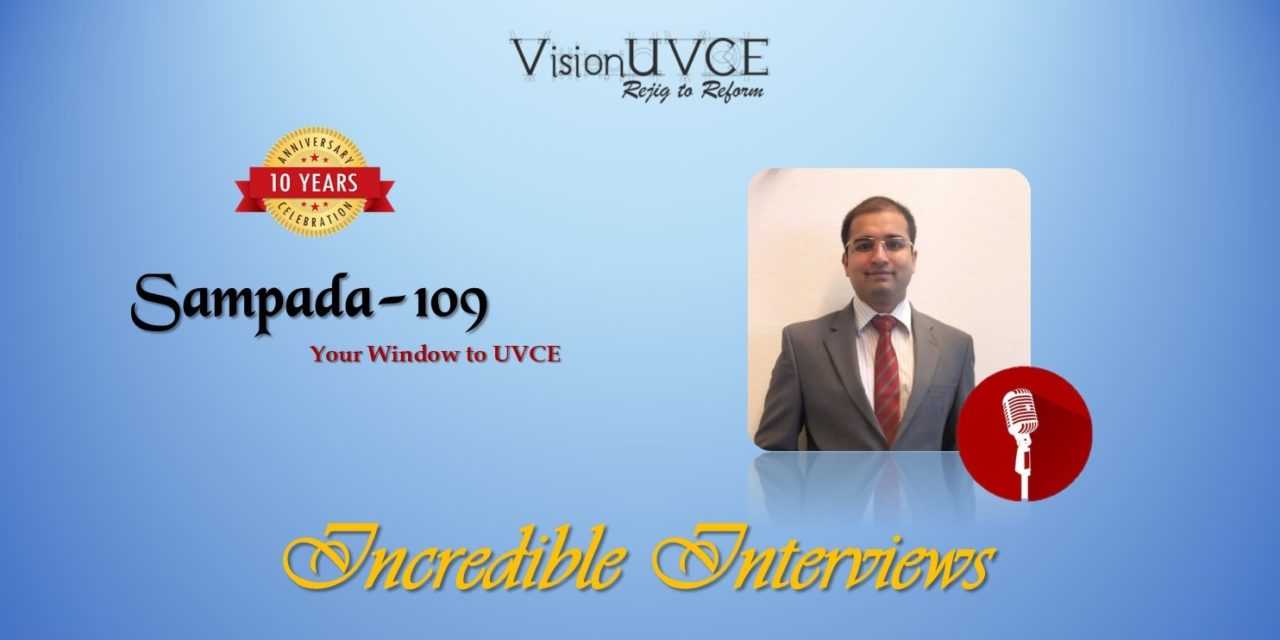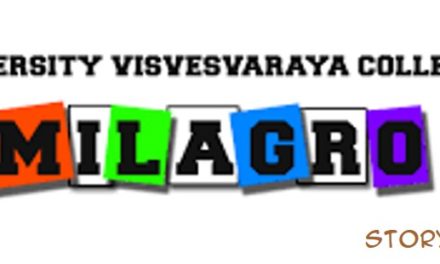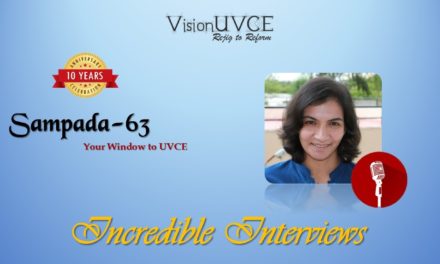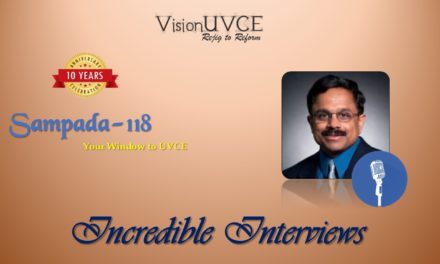Borrowed from SAMPADA old editions – for the 10th Anniversary Special Issue – Interviews section. This one is of Akshay Kulkarni, 2013 Mech.
Team Sampada :Tell us briefly about what graduate program you pursued abroad. Also, what inspired you to take Masters and especially the yearn to do it abroad?
Akshay: I completed my Master of Science in Aerospace Engineering at Delft University of Technology in the group of Flight Performance and Propulsion. Typically the program involved a mix of compulsory and elective courses in the first year followed by a rigorous research thesis for 1 year. Honestly, I was not really motivated to go abroad. I had found 3-4 jobs in my time at UVCE and I was hoping to pick one of them after graduation. However a few of my professors, in particular Prof. Gopalprakash, who used to teach courses in the final year of engineering were insistent that I had the right qualities to study abroad and pursue research as a career. They suggested that I could apply to a few universities in the United States of America (USA). I tried to skirt this by saying I am not a fan of American way of living and wouldn’t want to live in USA. They then proposed that I apply to a few European Universities. I applied to multiple universities and got admission offer letters too. It was after this that I started researching the relative merits and de-merits of different universities. After rigorous research I came to learn of the famed alumni of the universities I had gotten an admit from (TU Delft, NTU Singapore, TU Munich etc.) and their well-equipped facilities and research opportunities. These factors and the realization that I was offered a unique opportunity formed the basis of my motivation.
Team Sampada: What was your experience and what kind of transformation did you have to go through from having been part of India’s(/UVCE’s) undergraduate system to a education system abroad for masters? Did any of your UVCE learnings help during your masters in any way?
Akshay: My experience in the Masters was really good. Initially I had an illusion that I had a lot of free time as I did not have as many classes as I had in India but I soon realized that the free time was meant for my assignments and preparations for the ensuing classes. I also encountered some failure initially as I was not as rigorous as my teachers as TU Delft expected me to be. This was a great learning experience on two counts. On one had it helped me improve my skills as an engineer and on the other it taught me to fight failures. Once I acquired an understanding of their expectations, I started delivering to the expected standards and finished my courses with very good grades. This also got me an offer to work in TU Delft and further pursue research work as a PhD candidate.
Since I studied mechanical engineering in India and continued with aerospace engineering here, there was not a lot I could use in terms of technical knowledge for most courses. For the courses that I did use the knowledge from UVCE, I felt that I was well versed with basic concepts. I realized that studying for more than just five exam questions (in UVCE) and being well prepared for all the internals can be very useful, especially if you are planning further studies. In addition to technical skills, UVCE educated me well enough to allow me to function individually without much support from teachers and fellow students.
Team Sampada: How was the experience of the whole academic life of your masters? How did you feel returning to a student life?
Akshay: My overall engineering skill level definitely improved. I also learnt to be critical of my own work and learnt to keep my patience that is essential in constantly improving one’s work. I have learnt from hard experiences that iteration and attention to detail are extremely essential for good quality work. I must say though that university life, especially for Indian students with limited economic resources, can be quite stressful. It definitely had an adverse effect on my health. One must be mentally strong to deal with constant stress that comes with limited financial freedom.
Team Sampada: What is your key advice/suggestion to any of namma UVCEians who are looking to pursue masters abroad?
Akshay: For people starting their engineering I suggest they follow their coursework sincerely and try to understand what is being taught. Often, teachers show derivations and solve problems in class but it is the responsibility of the students to move beyond what is taught in classrooms. Read a lot of books! Both technical and non-technical. Try to use internals as a milestone to understand new concepts. While marks are not important, they, to a certain extent provide an indication of a student’s understanding. Study more than just five questions needed for final exam! Make good use of your time by using online courses. They are taught by some of the world’s best teachers and researchers. Focus on keeping yourself aware of all the major developments in the world of engineering and try to apply the principles learnt in classes to gain better understanding of these developments. At the end of the education you will be tested on three main skills in the technical world: understanding of fundamental concepts, accuracy of calculation (decisions) and speed of application for innovation. For people at the cusp of applying to foreign universities, I would suggest they introspect on their decision of moving abroad and be very certain of their decisions. In addition, economics play a huge role ensuring mental peace. Do secure your finances before moving abroad. It can have a huge bearing on your career. All the best!
– Akshay Kulkarni, Sampada-109





